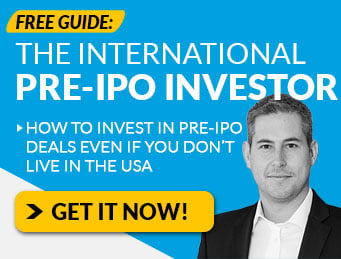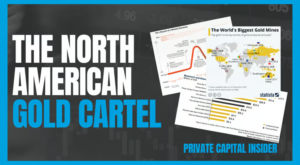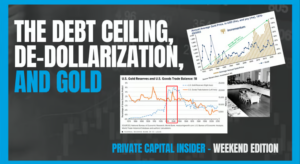We know you want access to exciting Pre-IPO opportunities that have the potential for life-changing gains…
But here’s the truth about early stage investment opportunities most people don’t realize.
Going public – and staying public – is a hard and expensive process.
And most founders who turn to crowdfunding for capital have no intention of going public – despite what they tell you.
So, if your expectation is that you’re investing in a company that is going to go public one day…
Here’s what you need to know before investing.
A Primer on Going Public
Collectively, the Equifund team has more than 40 years of experience with helping small cap companies raise capital and go public!
And we’ve seen first hand the problems that can happen when a company goes public too soon or without the proper funding and capital markets infrastructure in place.
Problems that – thanks to the JOBS Act – can be avoided with proper planning.
We call our strategy the Capital Markets Slingshot.
The goal of this strategy is simple:
Get the Issuer properly set up to take in investor capital…
Get it ready to go public within the next 12 – 36 months of being listed on Equifund…
And help it avoid making financing mistakes along the way that destroy early shareholder value.
To do this, it means we have to begin with the end in mind.
And that means knowing the requirements for going public in the first place!
But most investors don’t realize that the public markets aren’t a large, amorphous blob of public stocks.
Instead, it’s more like a sporting environment where there are different leagues with different standards for play.
For example…
If you follow American college sports, the schools are divided into Division I, II, and III.
If you follow baseball, you’ve got Minor League Baseball (also known as the “Professional Development League” or PDL) and Major League Baseball.
Well, the Capital Markets – which is where companies go to compete for investor money – have the same type of setup.
The over-the-counter (OTC) Markets are kind of like the “Minor Leagues” of the stock market while the Nasdaq and NYSE are like the Major Leagues…
Each League also has different divisions the companies compete in for capital.
For example, the OTC Markets have three markets, each with their own listing requirements.
- OTCIQ: The Pink Open Market – Stocks listed here have no financial standards or disclosure requirements (however, this is about to change with new amendments to Exchange Act Rule 15c2-11 that go into effect on Sept 28th, 2021)
A wide spectrum of companies are traded on this market, including foreign companies that limit their disclosure in the U.S., penny stocks and shells, as well as distressed, delinquent, and dark companies not willing or able to provide information to investors.
- OTCQB: The Venture Market – for entrepreneurial and development stage U.S. and international companies.
To be eligible, companies must be current in their reporting and undergo an annual verification and management certification process.
Companies must meet the $0.01 bid test and may not be in bankruptcy.
- OTCQX: The Best Market – for established, investor-focused U.S. and international companies.
To qualify for the OTCQX market, companies must meet high financial standards, follow best-practice corporate governance, demonstrate compliance with U.S. securities laws, be current in their disclosure, and have a professional third-party sponsor introduction.
Penny stocks, shells, and companies in bankruptcy cannot qualify for OTCQX.
The Nasdaq Stock Market has three distinctive tiers:
- Nasdaq Capital Market (NASDAQ-CM)– for companies that have relatively small levels of market capitalization.
- Nasdaq Global Market (NASDAQ-GM) – for mid-sized companies.
- Nasdaq Global Select Market (NASDAQ-GS) – for large cap companies.
If you’d like to check out the full listing requirements, you can go here.
And the New York Stock Exchange has…
- NYSE American –the leading global marketplace for small-cap companies (go here for the listing standards)
- NYSE –the world’s listing venue for mid- and large-cap companies across all verticals (go here for the listing standards)
While each market is different, there are typically three things the company is going to need in order to go public.
First… all public companies are required to have a board of directors.
With this in mind, as investors, we want to see that the company is proactively building an experienced board fit for public markets.
Second… they are going to need to have a certain number of shareholders who own a certain amount of shares.
One of the main benefits of Regulation Crowdfunding is that it’s substantially easier to meet the minimum shareholder requirements.
Third… in order to pass the SEC’s penny stock test (which they’ll need to get listed on the OTCQX or better), the company typically needs to meet the “$5 Million Net Tangible Assets” requirement (there are certain exceptions to this however).
What this means for Pre-IPO Investors (and why we care about this stuff)
As part of our due diligence process at Equifund, we are looking for founders who have already decided they want to go public…
And are proactively taking steps to get ready for an eventual IPO!
Because getting ready for the public markets is no small task.
Sadly, most entrepreneurs aren’t cut out to be the CEO of a publicly traded company.
And if they’re not building the proper infrastructure to not only go public, but remain public…
It could end badly for the Pre-IPO investors who thought they were getting a potential “10x-er” (instead of a “1/10th-er”).
Remember, at the bottom of every offering on Equifund, there is a Q&A forum you can use to ask questions.
If the company is claiming they’re going to go public, ask them questions about it!
Going public doesn’t just happen by accident. It’s usually a 6-18 month process that requires serious commitment from the entire team.
If they really are planning to go public, they should be proactively planning and building towards it.
Yours for investing equality,
Jordan Gillissie – CEO
Equifund



